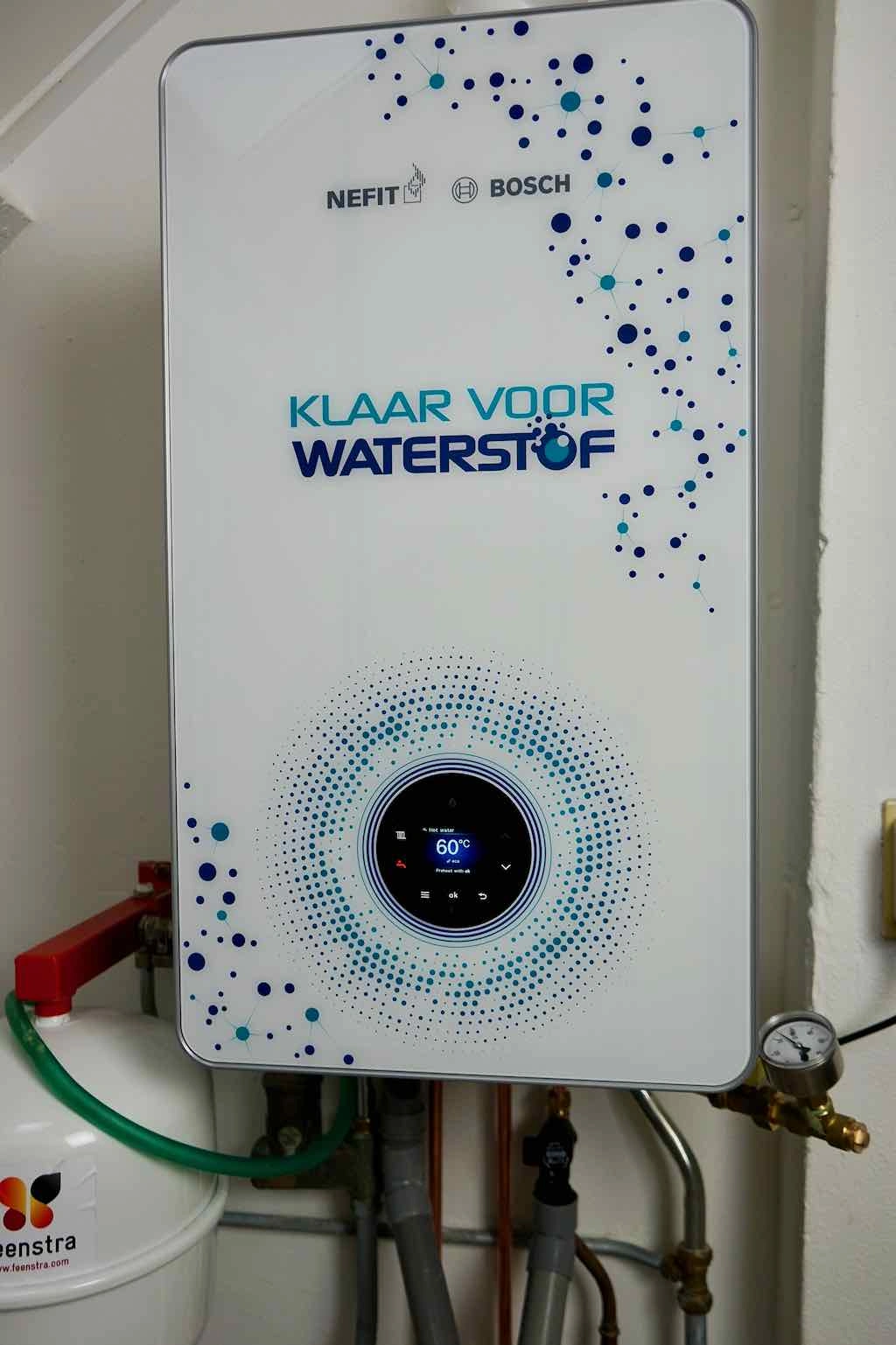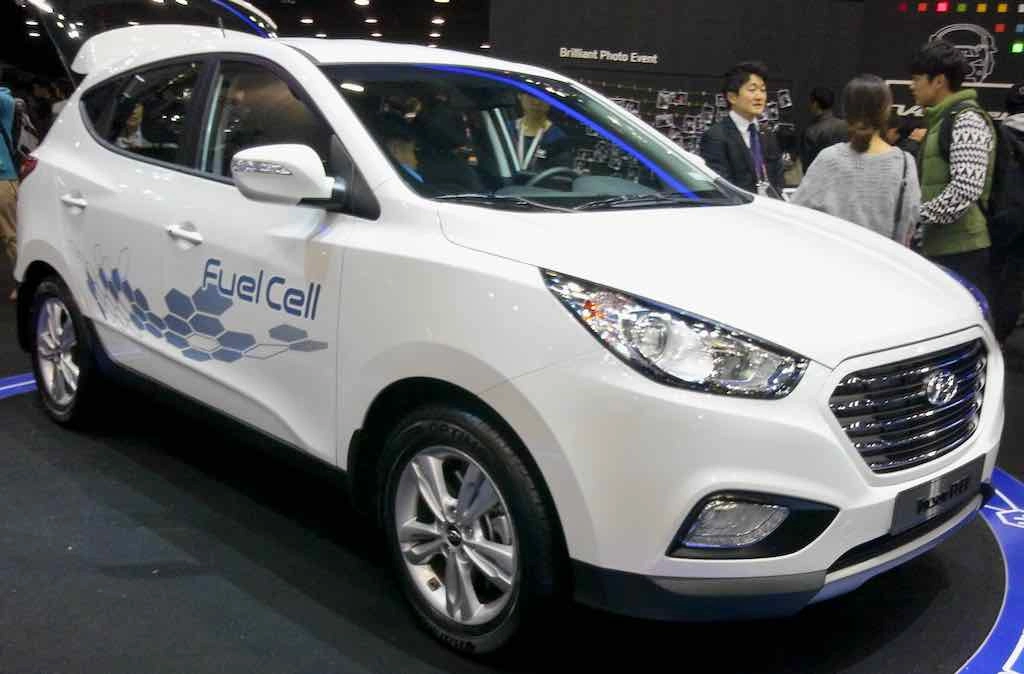That the use of fossil fuels is coming to an end is clear to most people by now. The cleanest and cheapest way to generate energy is with solar panels and wind turbines. But we also need to store this renewable energy somewhere, and use it when needed for heating and transport. Meanwhile, the Netherlands is crisscrossed with gas pipelines leading to almost every home. So, can't we just use solar energy to produce hydrogen and then feed it into those pipelines? Because hydrogen gas (H2) can be burned just like natural gas (CH4), and unlike natural gas, burning hydrogen doesn’t release CO2—only clean H2O (in other words: water).
With that idea in mind, several manufacturers have now created central heating boilers that are “H2-ready.” They can run on both natural gas and (natural gas mixed with) hydrogen. If hydrogen eventually flows through our gas lines, these boilers are already prepared. Still, these appliances haven’t exactly become a hit. Why not?

A hydrogen-ready boiler from Nefit Bosch (source: Nefit Bosch)
A hydrogen boiler really only makes sense once hydrogen gas actually flows through the gas grid. But we’re nowhere near that point yet: there simply isn’t enough hydrogen gas being produced. The idea is that in the future, there will be so many solar panels and wind turbines generating power that there will be a huge electricity surplus compared to what we consume at any given moment. That surplus would be used for water electrolysis (splitting H2O into H2 and O2), which would produce the large amounts of hydrogen needed for the gas network.
Even with today’s healthy growth in renewable energy, it will still take many years before the infrastructure is in place to produce those volumes. For now, most of the available hydrogen is what’s called “gray hydrogen.” That’s hydrogen made from methane. Producing gray hydrogen releases CO2, so we’re not gaining much from it yet.

Waterstof kan ook gebruikt worden voor transport, zoals voor deze Hyundai. Er rijden momenteel 527 personenauto's op waterstof in Nederland (bron: RVO)
When it comes to heating homes, using a heat pump is a much more efficient solution. According to the Dutch Consumers' Association, for example, it takes about seven times more energy to heat your home with hydrogen than with a heat pump. However, most heat pumps are only truly efficient when the home uses low-temperature heating (like underfloor heating instead of traditional radiators), and that only makes sense if the home is well-insulated. Poorly insulated homes are difficult to keep comfortably warm with low-temperature heating. On the other hand, more and more new types of heat pumps can now produce higher temperatures, making them suitable even for traditional radiators.
There’s another reason to be cautious with hydrogen: some gas always escapes during production, transport, and use. This hydrogen gas ends up in the atmosphere. While hydrogen itself isn’t a greenhouse gas, it can still negatively affect the climate. That’s because hydrogen reacts with hydroxyl (OH) in the atmosphere. And that’s a problem, because hydroxyl is needed to react with methane. Methane is a greenhouse gas, and if it doesn’t get broken down by hydroxyl, it lingers longer in the atmosphere and worsens the greenhouse effect. Because of this, hydrogen is sometimes called a secondary greenhouse gas.

Aircraft manufacturer airbus is researching hydrogen-powered jet engines (source: airbus)
The points above suggest that we should be cautious about a large-scale rollout of hydrogen boilers. But hydrogen can be useful for other applications. For example, it could help make steel production more sustainable by switching from coal to hydrogen. There are also interesting opportunities in the transportation sector—not just for road transport, but also in the air.
In the coming years, we’ll hear more and more about the possible uses of hydrogen. These are exciting developments. But for anyone looking to heat their home sustainably, a heat pump still seems like the best option. And combining a heat pump with solar panels? Now that’s a winning combo.